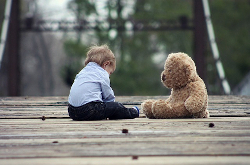기억 상실

Did you ever wonder why you have no memory of when you were a baby or very young child?
Researchers in the United States are investigating this question. The researchers work at Temple University in Philadelphia, Pennsylvania.
The question of why adults do not remember how they learned to walk or talk has long been a mystery.
Nora Newcombe is a psychology professor at the university. She joined Zoe Ngo, a Temple graduate student, in the memory research project.
Newcombe says: “You know you learned how to walk and talk, but the funny thing is that you don’t remember when and how you learned this.”
The Temple University study involved computer-based tests. The tests were designed to work like games. They were given to 32 four-year-olds, 32 six-year-olds and 50 young adults.
The tests measured the memory process that helps people recognize differences between experiences. For example: A walk with your dog when you saw a friend, and a different walk without your dog or when you did not see your friend.
“In order to remember those kind of autobiographical events, you need to relate one element to another,” Newcombe said. She notes that many people often take walks in a favorite park, but the experience might differ one day from another.
Special memory skills are needed to remember when different events happen, like meeting a friend, she said. This differentiation is known as relational memory.
This skill would also be important to remembering where you parked your car today, compared to where you left it yesterday or last week.
The second test involved showing the test subjects a number of photographs. The children and young adults taking the test were asked to compare the first group of photos with a second set of pictures.
Sometimes, the two sets of photos were the same. But other times, they were different. Remembering differences in objects, such as pictures, is known as pattern separation.
The results showed that in both tests, six-year-olds demonstrated far better memory than 4-year olds. The six-year-olds performed about as well as the young adults on the two tests.
The two tests suggest that memory skills are more advanced for six-year-olds than 4-year-olds. That might help explain why adults do not remember when they learned to walk or talk. But they do remember their third, fourth or fifth birthdays.
“We don’t have any memories in the first two years of life, and all of a sudden we’re able to form these memories for specific past events,” said Temple graduate student Zoe Ngo. “So, there must be something going on in early childhood or middle childhood that’s very interesting.”
Newcombe said memory research is important as doctors try to develop a cure for Alzheimer’s disease. Persons with the disease suffer memory loss.
For some people, memory loss is just for recent events. People may not remember what they did that morning, but remember experiences from 50 years ago.
But memory loss research is not limited to helping Alzheimer’s patients.
It could help with law enforcement officers trying to get more detailed descriptions from witnesses to crimes, Newcombe said.
It could also help find ways to get better and more reliable information from young victims of crime, such as child abuse by family members or care givers.

